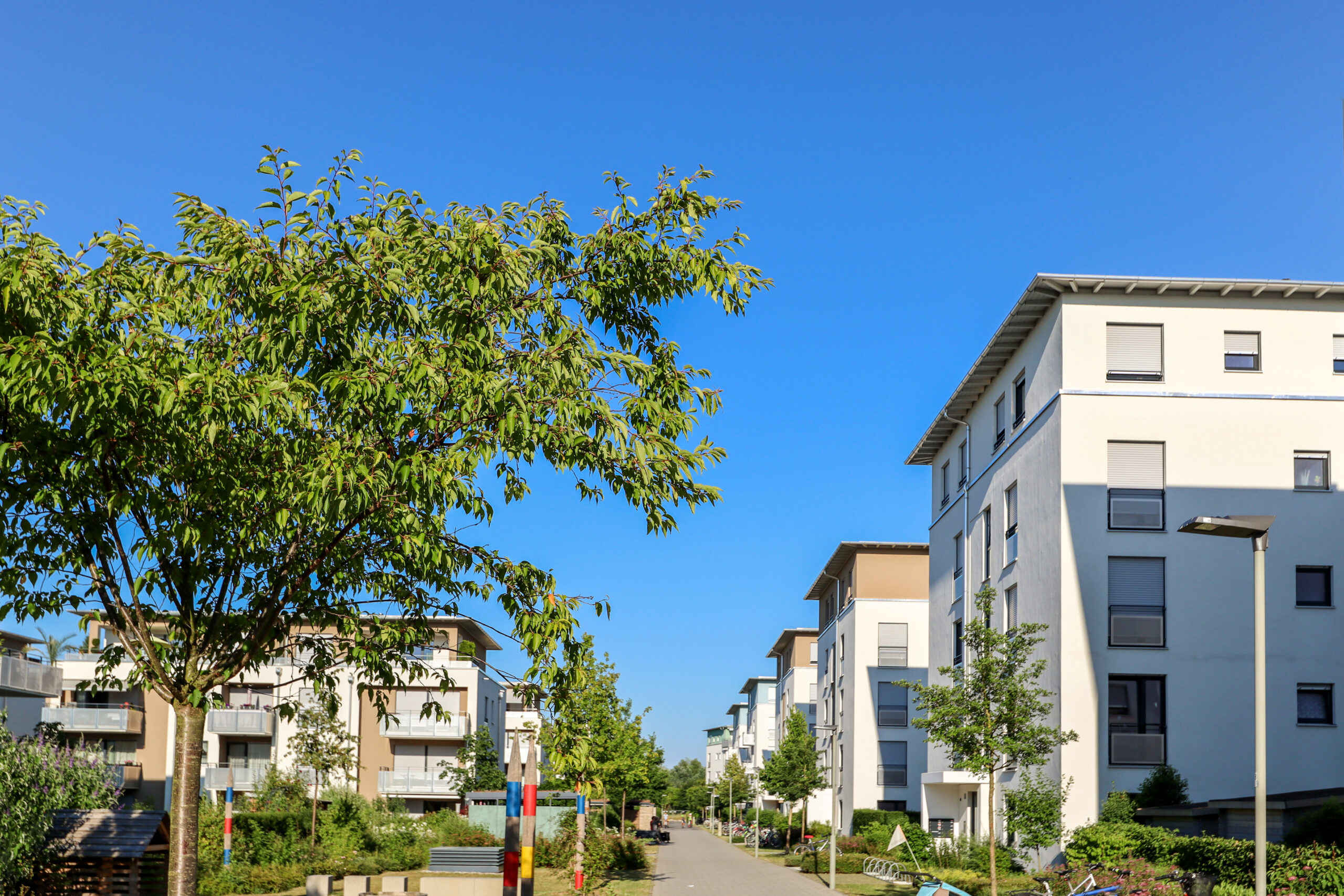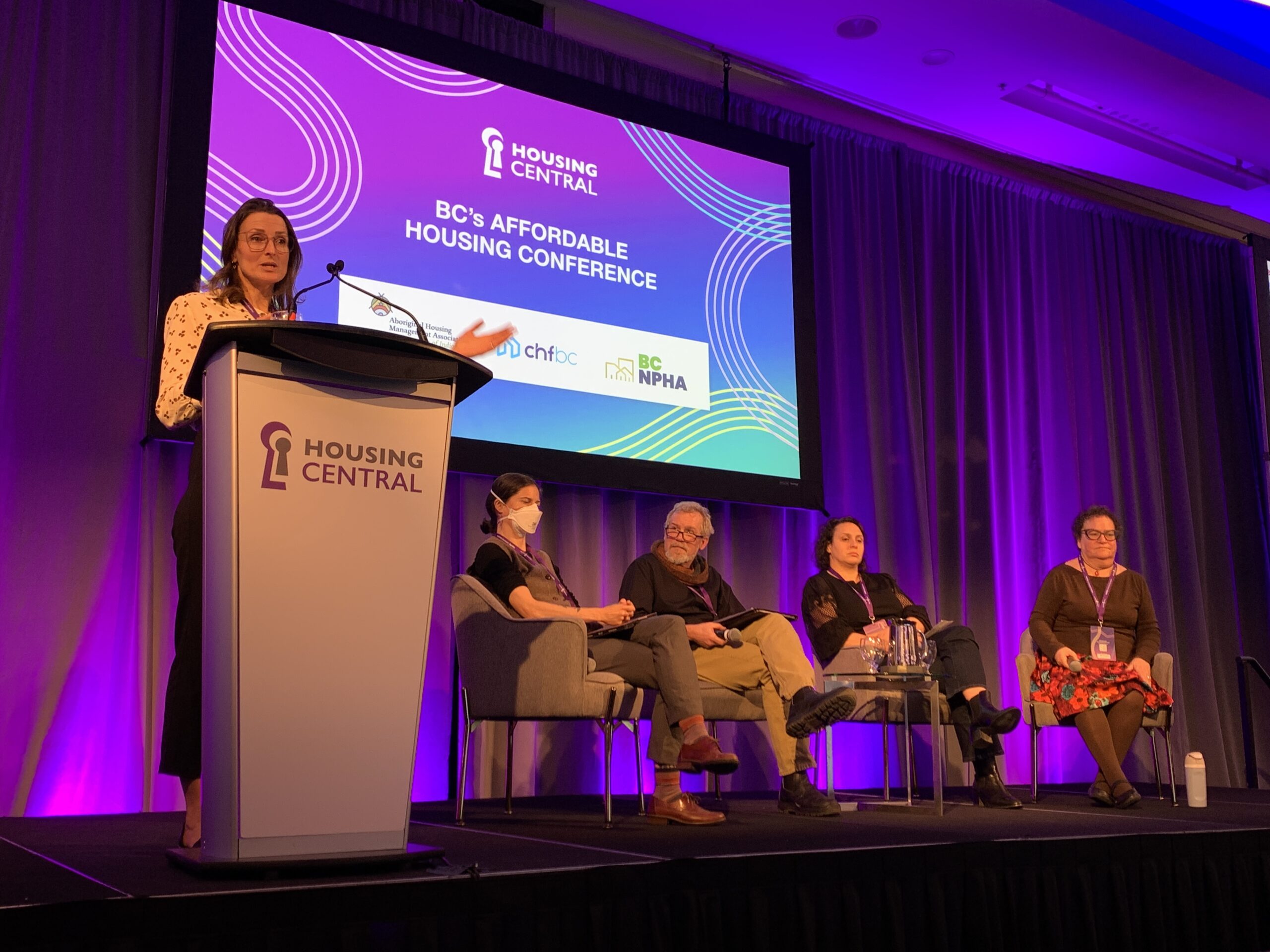Advancing a Rights-Based Housing Framework for Survivors of Violence and People with Disabilities
At the recent National Housing Council’s panel dialogue, leading advocates made a compelling case for reimagining how Canada’s housing system can better support survivors of gender-based violence (GBV) and people with disabilities. Our experts, CP Planning’s Cheryll Case, and the Balanced Supply of Housing’s Research Manager, Dr. Alina McKay and Principal Investigator, Dr. Alexandra Flynn shared the stark realities of our failing system and concrete pathways forward to advance housing as a human right.
The Planning Problem: How Cities Shape Access
Cheryll Case, founder of CP Planning and a nationally recognized advocate for equitable housing, particularly for Black Canadians, put municipalities squarely in the spotlight. As an urban planning expert in Toronto, Case pointed to the important role that municipalities play in the planning and approval processes and how these local decisions shape lives.
Historical examples show a troubling story: urban development and zoning have often been used to limit women’s opportunities to access adequate housing. But Case sees this as an opportunity to plan wholistically. By drawing on these examples, Case pointed to the importance identifying what is working and for whom, as well as the need to invest in systems that support community organizing to protect affordable housing and inclusive communities.
When Safety Becomes Scarcity: The Crisis Facing Survivors of Gender Based Violence
Dr. Alina McKay, delivered sobering findings based on her research with BC Society of Transition Houses. Their study, ‘Finding Rooms for Families’, reveals a system in crisis: transition housing is at capacity, and a lack of affordable, nonprofit rental housing leaves many women with nowhere to turn after experiencing violence.
This disequilibrium forces families into unsafe environments and heightens their risk of further harm. Federal, provincial, and municipal governments should collaborate through initiatives like the proposed ‘Build Canada’ program and unlock public land for multi-family housing in partnership with non-profit developers to guarantee long-term affordability.
Equally important, housing for survivors must reflect family-friendly design, accommodate diverse needs, and actively protect against discrimination. Most importantly, survivors need autonomy in their housing choices, not forced placement into inadequate or unsafe options.
Housing as a Constitutional Right
Dr. Flynn’s dialogue brought legal clarity to the discussion, emphasizing Canada’s constitutional responsibilities. For people with disabilities, housing must not be treated as discretionary policy or charity but recognized as a constitutional and international legal obligation. Despite Canada’s commitments, these obligations are consistently undermined by eviction practices, exclusionary zoning, and discriminatory eligibility criteria.
A rights-based housing system would be grounded in three pillars: autonomy, inclusion, and safety. We must ensure that individuals have the ability to decide where and with whom they live. Promising models include trauma-informed and accessible design, peer-led supports, harm reduction approaches, and Indigenous-led housing initiatives that centre community inclusion and long-term stability.
Flynn’s presentation also emphasized the disproportionate barriers facing gender-diverse people with disabilities, who experience intersecting forms of oppression including racism, colonial violence, misogyny, and ableism. Addressing these inequities requires urgent government action to expand affordable housing supply, embed culturally grounded and self-determined supports, and shift responses away from criminalization.
Critical steps include decriminalizing substance use and developing mental health supports outside of policing. Only then can we build housing systems that are inclusive, safe, and firmly rooted in human rights.
A Rights-Centred Blueprint: Seven Essential Policy Interventions
- Make Rights Real Through Legal Enforcement
The right to housing must translate into statute and enforceable standards rather than remain an aspirational statement. Establishing clear targets, such as ensuring no household spends more than 30 percent of income on rent, is essential. - Prioritize Safe, Affordable, Non-Profit Housing
Governments must break their reliance on private market solutions by unlocking public land and investing decisively in non-profit housing. A coordinated Canada Build initiative, designed through multilevel collaboration, could facilitate long-term affordability anchored in human rights principles. - Centre Wholistic Human Rights Urban Planning
Though municipalities control planning and approval processes for housing, there is often a lack of capacity within planning departments—especially when it comes to their capacity for rights-based approaches. Many communities are mobilizing around affordable housing solutions, but these projects require municipal buy-in. Investing in municipal staff who take a wholistic human-rights approach to planning and approvals could ensure new projects truly meet community needs. - Design for Dignity and Diversity
Affordable housing must meet the diverse needs of real people. This includes fully accessible units, family-oriented layouts, trauma-informed communal spaces, and culturally grounded supports. Indigenous-led housing models and community land trust approaches offer compelling frameworks for culturally safe, sustainable housing solutions. - Provide Unconditional Support: Autonomy, Inclusion, and Harm Reduction
Rights-based housing affirms individual autonomy. Services should be voluntary, peer-led, trauma-informed, and separated from punitive models such as mandatory treatment or abstinence requirements. For gender-diverse people with disabilities facing intersecting oppressions, supports must acknowledge and address these complex realities. - Invest in Intersectional Infrastructure
The most vulnerable—Indigenous, racialized, gender-diverse, and disabled individuals—face compounded challenges that demand targeted policy solutions that invest in intersectional equity. Addressing these inequities requires culturally grounded supports, including Indigenous-led healing lodges and transitional housing that integrates harm reduction for LGBTQIA2S+ and non-binary people. It also requires decriminalization of substance use and the development of mental health responses that are not centred in policing. - Embed Human Rights in Legislative Reform
Every level of government must codify the right to housing through binding legislation. The National Housing Strategy Act sets the foundation but must be strengthened through measures such as stronger renter protections, oversight of evictions, and meaningful inclusion of lived experience in policy design and review.
Making This a Reality
The path forward requires both legislative reform and investments in housing and supports. We must take this opportunity to ensure that the housing rights of women and gender-diverse people are recognized and honoured. Each level of government has a role to play. Municipalities can ensure that planning processes take a wholistic human-rights approach that builds on the work that many communities are already organizing to protect affordable housing. Provincial governments can invest in non-profit housing and comprehensive support systems. The federal government can strengthen legislation with statues and enforceable standards that demand accountability.
These changes are essential to the health and vibrancy of our communities. BSH’s experts at the NEHA panel, among many others, have demonstrated both the urgent need and the viable solutions. As the new administration takes on housing, we must demand policies that reduce harm and empower our most vulnerable neighbours.
Learn more about the Neha panel review on the National Housing Strategy’s website or read more about our research on Re-evaluation National Occupancy Standards project here.
The Balanced Supply of Housing is a SSHRC-CMHC funded, community-based research project at UBC that focuses on land use and housing financialization across Vancouver, Toronto, and Montreal.



